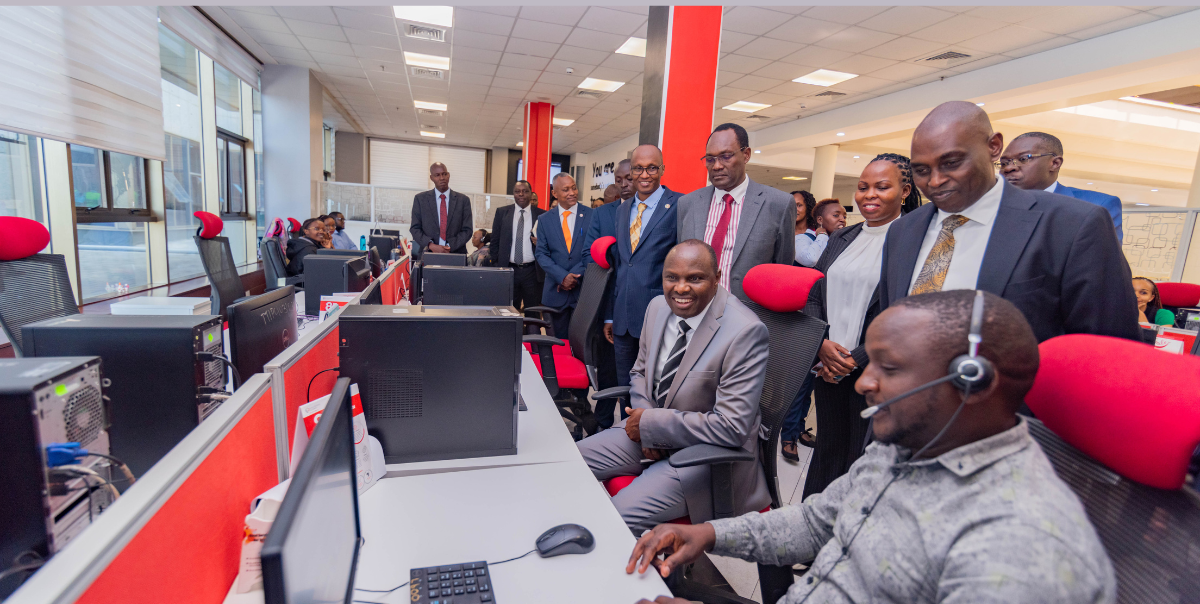In a major win for Kenya’s trade sector, the Kenya Revenue Authority (KRA) has slashed the time taken to release goods from the Port of Mombasa, Inland Container Depots (ICD), and Kenya Railways Corporation Sheds by a staggering 54% over the past three years. According to the latest data, the clearance time has dropped from an average of 112.6 hours in 2021/2022 to just 51.43 hours in 2023/2024. This reduction means goods are now cleared in a little over two days, compared to the previous four-day average, enhancing Kenya’s position as a regional trade hub.
Streamlined Customs Processes Drive Faster Clearance
The dramatic improvement in cargo release times can be attributed to the increased adoption of Pre-Arrival Cargo Processing (PAC), which has seen its uptake grow from 25.28% in FY 2021/2022 to 40.55% in FY 2023/2024. The KRA’s Integrated Customs Management System (iCMS) now allows for customs declarations to be made using the bill of lading as the primary document, enabling faster processing even before the cargo reaches Kenyan shores.
Moreover, to bolster risk management, all goods arriving at the Port of Mombasa must now undergo inspection at their port of origin. This step ensures compliance through the issuance of a Pre-Export Certificate of Conformity, issued by inspectors licensed by the Kenya Bureau of Standards (KEBS), reducing the need for further inspections upon arrival.
Digital Integration Fuels Efficiency
Another game-changer for customs clearance has been the seamless integration between KRA and KenTrade’s Trade Facilitation Platform, which has significantly reduced human interaction and minimized bureaucratic delays. The platform allows for the efficient sharing of critical data, such as import declarations and supporting documents, among Partner Government Agencies (PGAs). This digital streamlining has expedited the issuance of necessary licenses and permits, eliminating the need for in-person office visits by importers and customs agents.
Revenue Surge Reflects Improved Operations
The efficiency gains from these reforms have not only sped up trade but also translated into higher customs revenue. In the 2023/2024 financial year, KRA recorded a 4.9% increase in customs revenue, collecting KShs 791.368 billion, compared to the previous financial year. This growth was driven by a 10.3% rise in oil tax revenues, which amounted to KShs 300.77 billion, while non-oil taxes stood at KShs 490.6 billion.
Despite a notable 11.7% increase in the value of imports—driven by rising costs of freight, insurance, and excise duties—tax performance was slightly dampened by a 23.8% increase in exemptions and remissions. These exemptions, mainly applied to food commodities, were part of the government’s strategy to mitigate the impact of drought and reduce the cost of living for Kenyans.
What This Means for Businesses and the Economy
The KRA’s efficiency drive has not only improved Kenya’s logistics and trade competitiveness but also made the country more attractive to foreign investors. With faster cargo processing times, businesses can expect reduced operational costs, quicker inventory turnover, and more reliable supply chains.
As KRA continues to enhance its systems and processes, traders and logistics providers are encouraged to adopt Pre-Arrival Cargo Processing to further benefit from the faster, more efficient customs procedures now in place. With Kenya positioning itself as a key player in the East African trade corridor, these improvements mark a significant milestone in the country’s economic growth.
Key Takeaways:
- Cargo clearance time at Mombasa Port has been reduced by 54% over three years.
- The increased use of Pre-Arrival Cargo Processing and KRA’s iCMS system has been crucial in speeding up customs operations.
- KRA’s integration with KenTrade’s digital platform has streamlined the process, reducing human interaction and cutting down delays.
- The efficiency measures have led to a 4.9% increase in customs revenue, amounting to KShs 791.368 billion in FY 2023/2024.
- The rise in import values was tempered by growing exemptions aimed at curbing the cost of living during drought conditions.
As Kenya continues to modernize its trade infrastructure, the KRA’s efforts to enhance efficiency are proving crucial in boosting both local and international business, providing a much-needed catalyst for economic growth.





